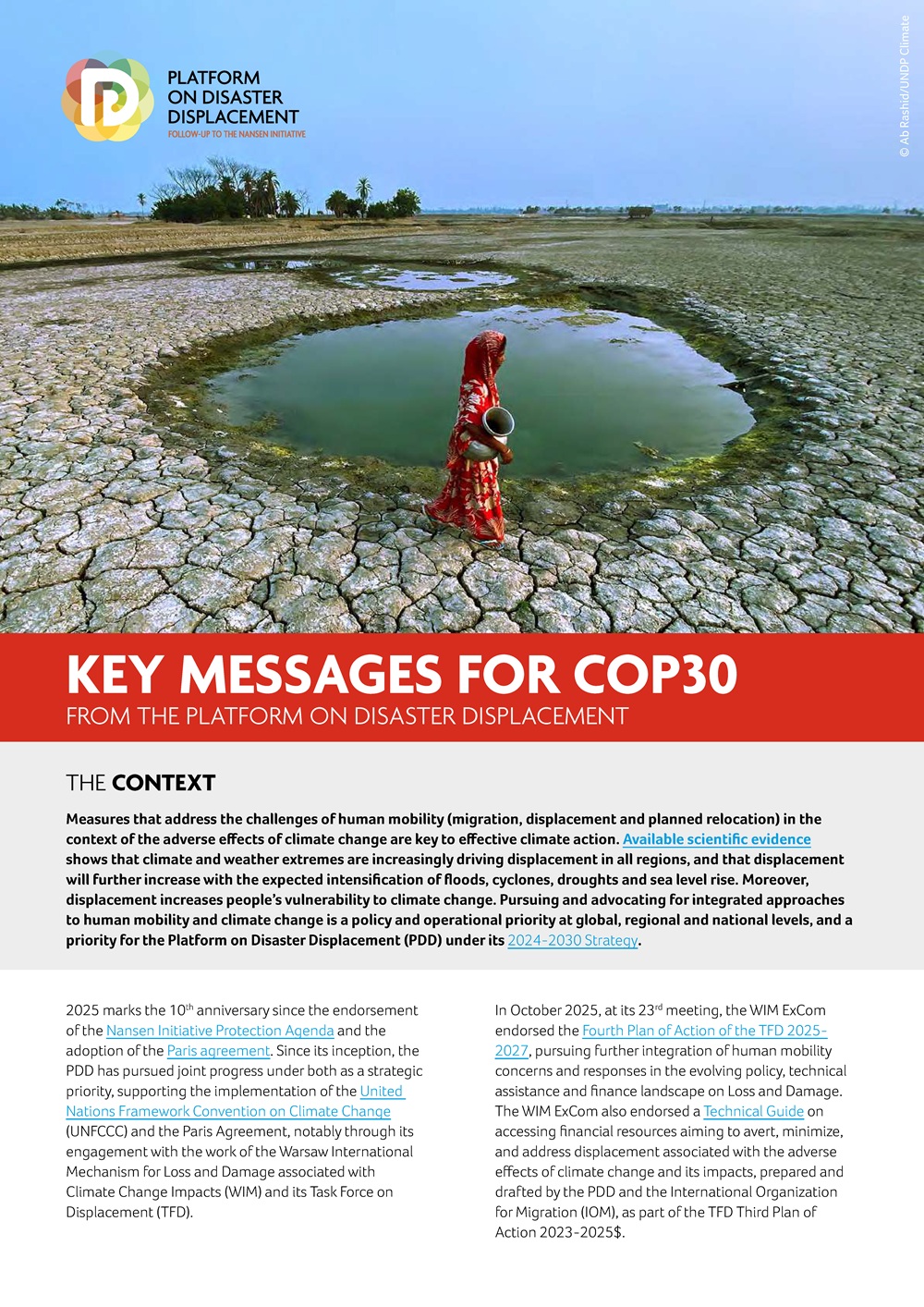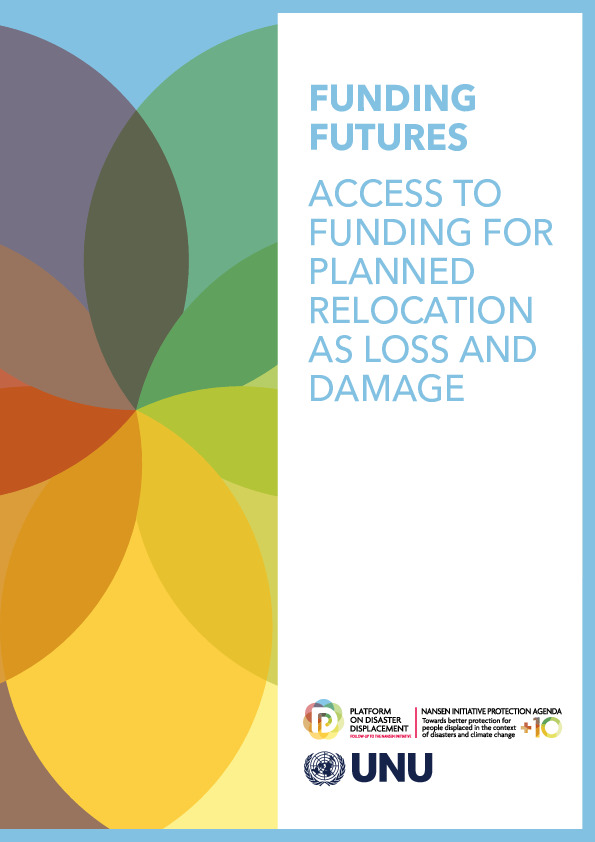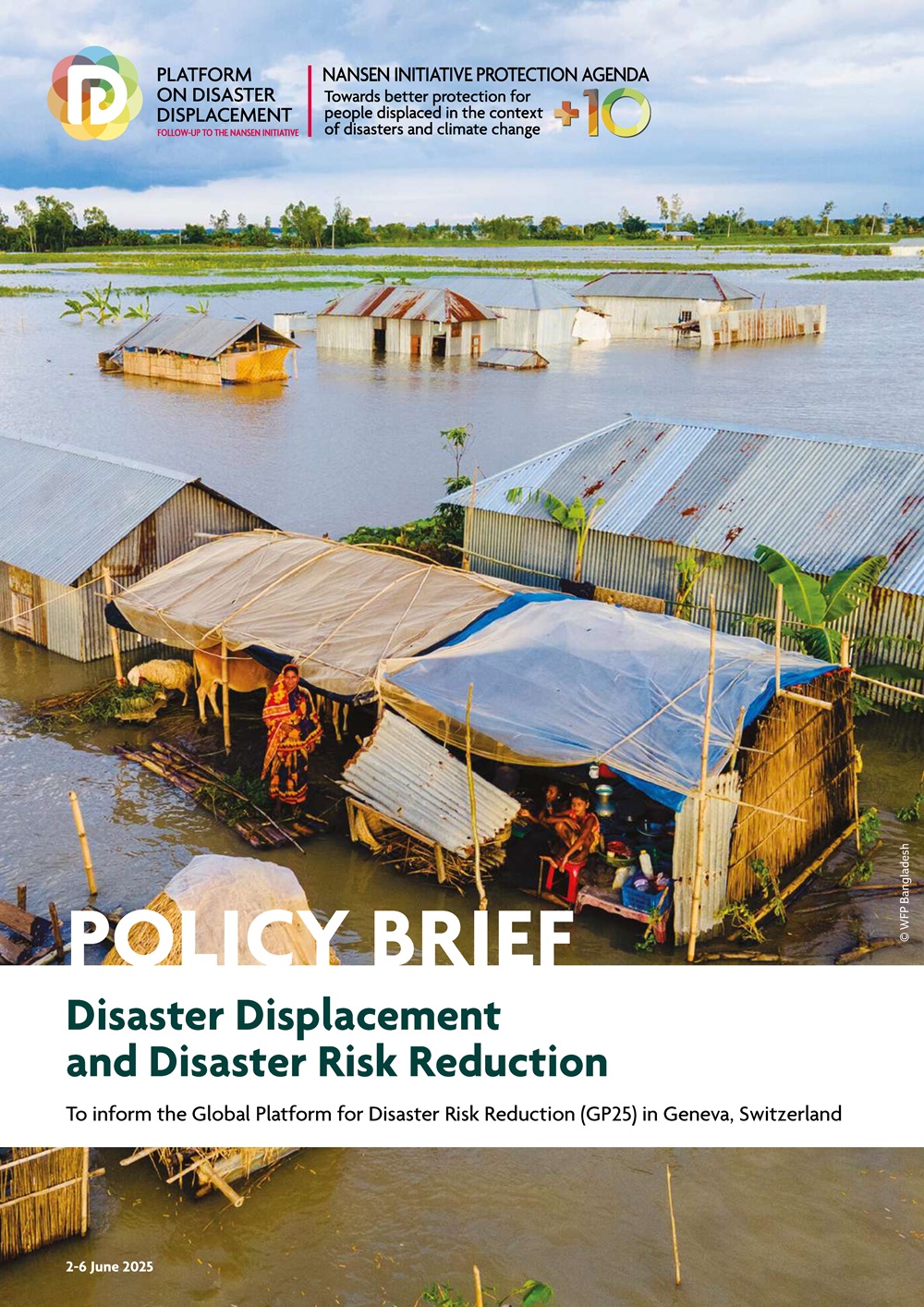Disasters and Displacement in a Changing Climate: The Role of Asia Pacific National Societies
Displacement in the context of disasters and climate change has been described as one of the greatest humanitarian challenges of the 21st century. Asia Pacific Red Cross and Red Crescent National Societies have a vital role and are already active in addressing this challenge, including through initiatives to prevent and prepare for displacement, to respond to displacement and to support recovery and the attainment of durable solutions for those displaced. National Societies and the IFRC also have a key role in undertaking humanitarian diplomacy in support of those most at risk in the context of disaster displacement. On average, more than 20 million people are newly displaced every year by sudden-onset hazards including floods, storms, wild fires, extreme winter conditions, earthquakes, volcanic eruptions and landslides. The vast majority of such displacement occurs in the Asia Pacific region.
It is increasingly recognized that displacement in the context of sudden- and slow-onset hazards will not be the only type of population movement linked to disasters and climate change. Increasing numbers of people migrating in response to the impacts of disasters and climate change and people moving in the context of planned relocations are also widely expected. Asia Pacific National Societies have an important role and are already active in addressing migration and planned relocation in the context of disasters and climate change.
Migration, displacement and planned relocation (often referred to collectively as “human mobility”) linked to disasters and climate change are increasingly addressed in a range of national, regional and international laws, policies and strategies. These documents and initiatives often recognize that human mobility in the context of disasters and climate change is not only a cross-sectoral challenge, but also requires a cross-sectoral solution. National Societies and the IFRC have important roles and are increasingly engaged in humanitarian diplomacy initiatives linked to these national, regional and global processes and dialogues. This report is designed to enhance the collective understanding of Asia Pacific National Societies and the IFRC on the trends, dynamics and humanitarian needs of people on the move in the context of disasters and climate change. The report focuses on the role of Asia Pacific National Societies in the context of displacement, but also addresses the related human mobility trends of migration and planned relocation.
Beyond enhancing knowledge and understanding, the report is also designed to provide guidance for National Societies to individually and collectively enhance their humanitarian action in the context of disasters, displacement and climate change. The report builds upon the latest understanding and expertise on human mobility linked to disasters and climate change. The report also builds on relevant International Red Cross and Red Crescent Movement policies, guidance and commitments related to climate change, disaster risk management, disaster law, resilience, protection, gender and inclusion (PGI), migration and displacement. The report contains examples of existing initiatives by Asia Pacific National Societies, demonstrating the diversity and strength of Red Cross Red Crescent action to address this emerging and critical challenge. The examples capture practices from all parts of the Asia Pacific region – from East Asia, from South Asia, from South East Asia, and from the Pacific.
The report is intended to be beneficial across Red Cross and Red Crescent National Society departments, from leadership to disaster management, climate change, health, shelter, water, sanitation and hygiene (WASH), restoring family links (RFL), welfare, migration and beyond. The report is also intended to be useful for representatives from government, regional and global institutions, academia, civil society organizations and United Nations agencies to deepen their understanding of the core mandate and strengths of Asia Pacific National Societies in addressing displacement in the context of disasters and climate change.




